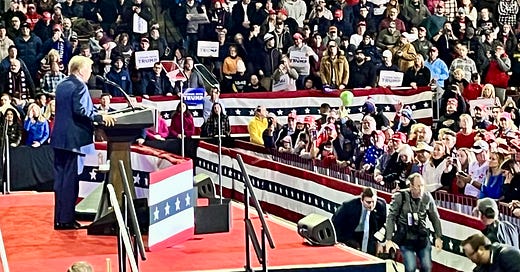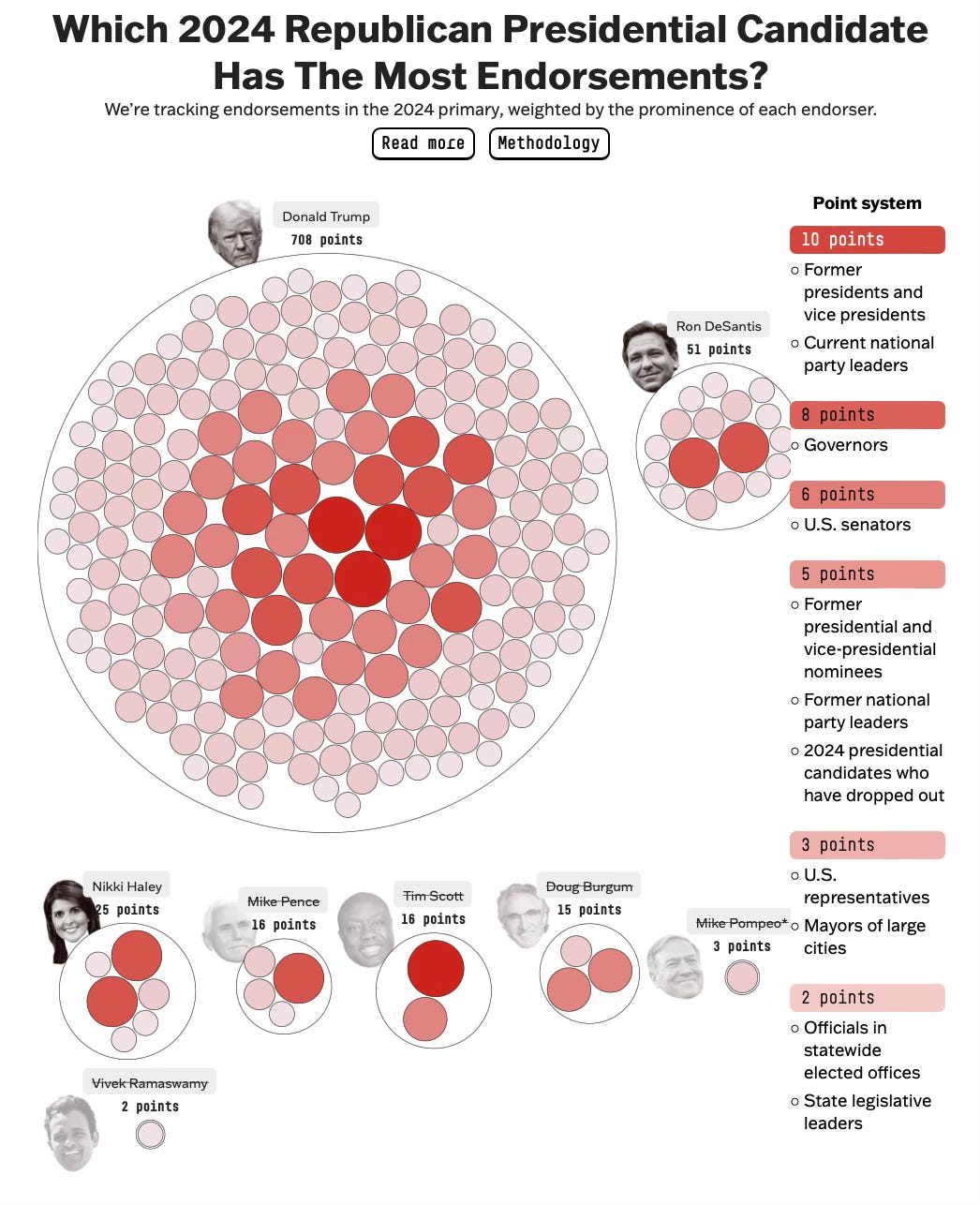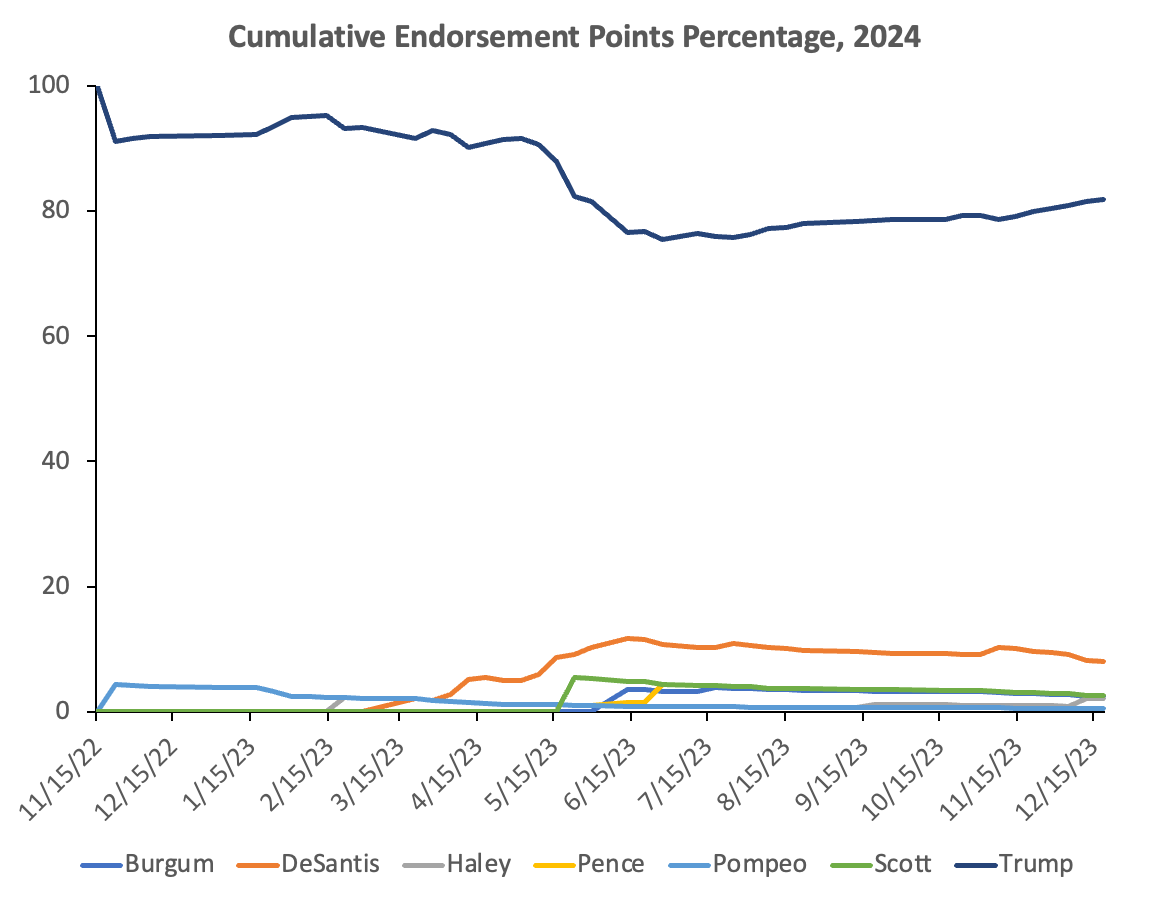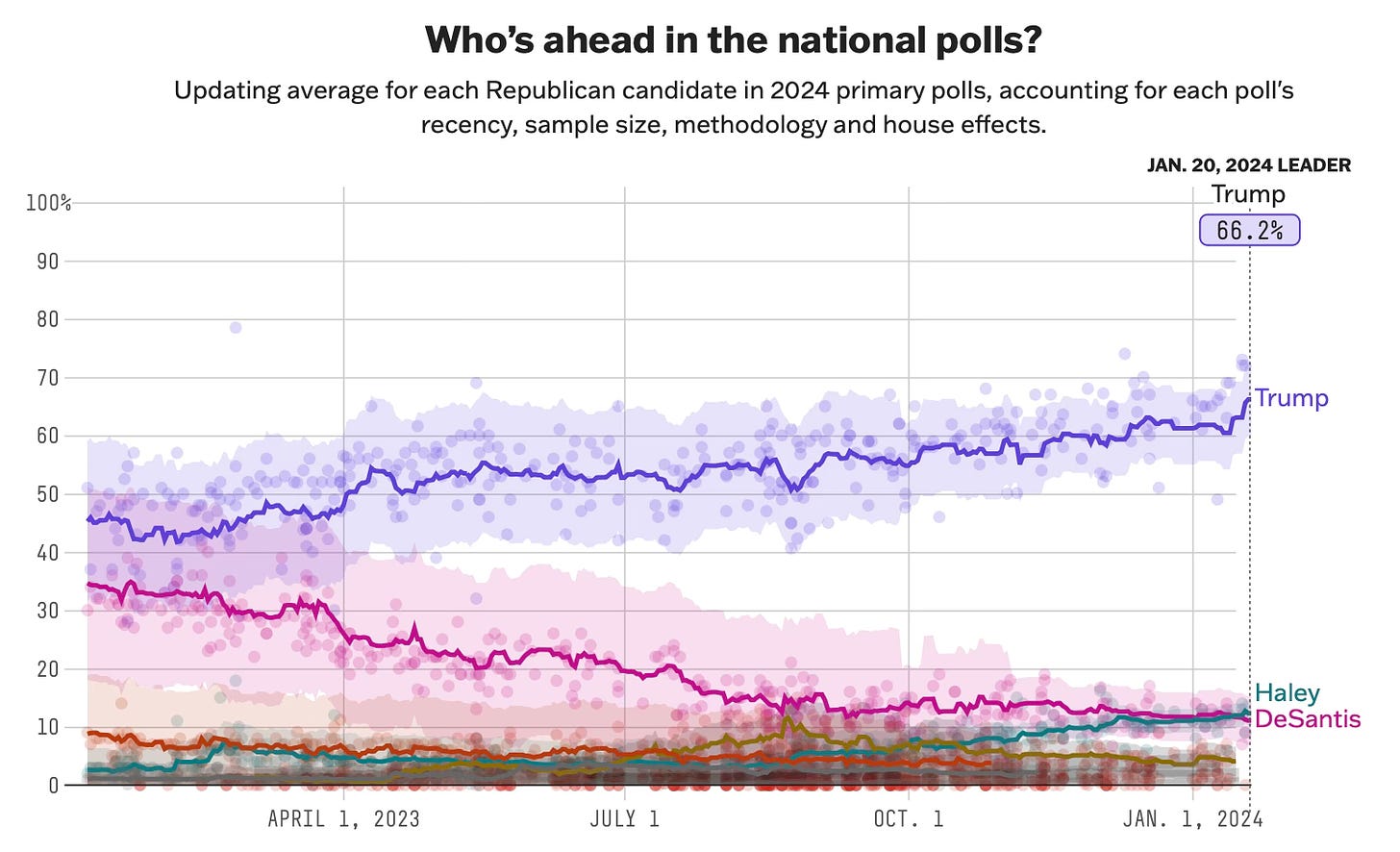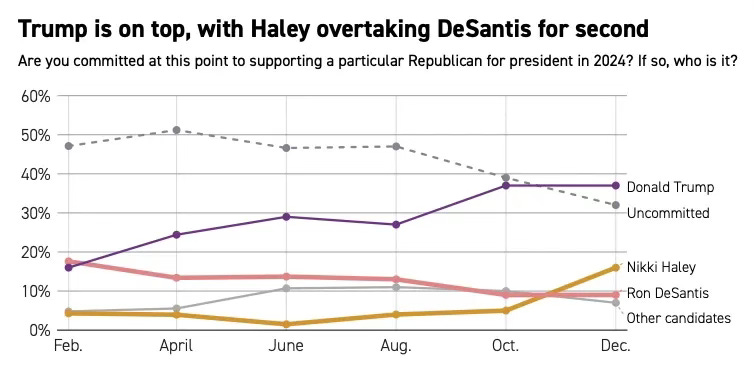I’m seeing pundits working through elaborate plots for how the non-Trump portion of the Republican Party can still win this presidential nomination by coalescing behind a single candidate. I certainly get the incentive to make this contest seem more competitive than it is. But the fact is that by basically any measure we have, the Republican Party has already decided on Donald Trump.
Put another way: for either Nikki Haley or Ron DeSantis to win the nomination at this point would be a bigger upset and a greater challenge to traditions and political science research than Donald Trump’s 2016 nomination was.
Let’s walk through the evidence. One reliable predictor of presidential nominations is prominent party endorsements. Typically, prominent people within the party (governors, members of Congress, state legislative leaders) are in contact with each other long before the Iowa caucuses and converge on a presidential candidate they like. They often publicly endorse that candidate, which helps with other endorsements, donations, publicity, and more. The candidate with the bulk of party endorsements almost always wins the nomination.
The Republican contest of 2016 was an important exception to that rule, as Republican party insiders never converged on a favorite. Few endorsed Trump, but really few endorsed much of anyone. This made it easier for a rich and well-known candidate who is good at getting media coverage to win the nomination.
But this year’s contest is almost entirely different. Republican insiders overwhelmingly back Donald Trump. He’s had roughly 80% of the endorsement “points” (by FiveThirtyEight’s calculations) since early 2023, and he had basically all the endorsements prior to that year. The figure below shows the cumulative endorsement points for each candidate as a percentage of all the points that had been awarded up to that point. Seen this way, this contest was never much of a competition.
Polling is a somewhat less reliable predictor of nominations, as famous candidates can have an early advantage that doesn’t translate well to actual contact with voters in primary and caucus contests. But to the extent it shows party preferences, Trump has dominated polling for the past year, and especially since the initial New York indictments in early April. It’s interesting that party elites have been more supportive of him than party voters have, but neither look particularly close
And then, of course, there’s the county chair studies I’ve been doing for the past year. These examine the preferences of local party leaders – not necessarily the people who drive the contest, but those who are very plugged in to local party networks and have greater knowledge of the candidates and the party than others around them. These folks were not strong supporters of Trump early on, but since April, they’ve been overwhelmingly committed to him.
Now, we should be clear that Trump’s status is an unusual one. He is running as a former president, something we haven’t seen since 1912. So he is somewhere between a typical challenger and an incumbent.
This unusual status was well reflected in the results of the Iowa caucuses. Trump overwhelmingly won by the largest margin ever in a contested caucus – 30 points. The biggest margin prior to that was Bob Dole beating Pat Robertson by 12 in 1988. At the same time, Trump won the 2020 Iowa caucuses with 97% of the vote, and there actually were some credible challengers that year, including former Gov. Bill Weld and former Rep. Joe Walsh. But because Trump was the incumbent, no one took those challengers seriously.
What we’ve seen since the Iowa caucuses this year is greater consolidation around him. Three formal rivals, Doug Burgum, Vivek Ramaswamy, and Tim Scott, announced their support for him, while no other candidate has received an endorsement from a former candidate. And Trump’s polling has surged in New Hampshire as a result, although Haley’s has risen a bit, as well.
At this point it seems unlikely that Haley will win New Hampshire, although she’ll likely do well, probably getting in excess of her percentage in Iowa. But even if she somehow pulled out a win there, it’s hard to see that reshaping the race.
If DeSantis were to call it quits, it’s doubtful he endorses Haley; most of his supporters will end up with Donald Trump. If Haley were to call it quits, it’s not clear who she’ll endorse, and probably a good chunk of her supporters would remain staunchly anti-Trump, but that’s a minority of the party. Haley’s and DeSantis’ supporters are not about to join forces to deprive Trump of the nomination, and even if they wanted to, they don’t have the numbers to achieve that task.
The simple fact is that this is what it looks like when a party is strongly behind a candidate. Trump has the kind of insider support we saw for Hillary Clinton in 2016 and for Al Gore and George W. Bush in 2000. We could certainly argue about why the party has decided for Trump – some might sincerely like him, others might be afraid of opposing him, etc. – but that’s largely besides the point. They’ve decided.


